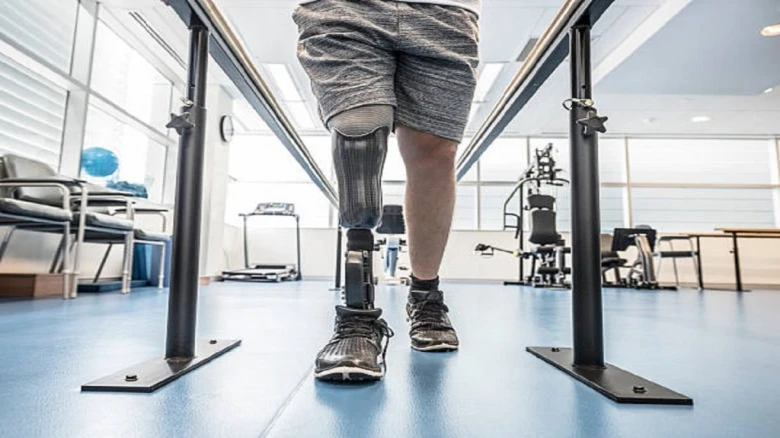Regional

It supports Indian needs such as cross-legged sitting and deep squatting and is suited for rough terrain.
Digital Desk: Researchers at the Indian Institute of Technology, Guwahati, have developed a prosthetic leg specifically for Indian conditions. It supports Indian needs such as cross-legged sitting and deep squatting and is suited for rough terrain. Moreover, it can also be adjusted for various age groups and phases of prosthesis use.
The Ministry of Education and the Department of Biotechnology, both of the Indian government, supported this research. The 151 Army Base Hospital, Guwahati, the Tolaram Bafna Kamrup District Civil Hospital, Guwahati, the Guwahati Neurological Research Centre (GNRC), North Guwahati, and the North Eastern Indira Gandhi Regional Institute of Health and Medical Sciences (NEIGHRIMS) in Shillong collaborated with the IIT Guwahati researchers.
The development of prosthetics in India faces many difficulties. For amputees to have fully functional mobility, they need gadgets with advanced functions that are expensive and out of budget for most people.
Furthermore, many functional problems exist in the market's cheap prosthetics. In addition, the Indian lifestyle and uneven terrain demand prosthetics with particular Indian characteristics that are not easily available in the market.
A team led by Prof. S. Kanagaraj, Department of Mechanical Engineering at IIT Guwahati, was formed to address these difficulties. This research team's prototypes of their models are currently undergoing testing.
"The knee joint developed by our team has a spring-assisted deep squat mechanism, which helps to use the Indian toilet system more comfortably; the knee rotating mechanism helps to have cross-legged sitting; the locking mechanism helps to reduce the fear of patients falling while walking in unknown terrain; adjustable link length in a knee helps to have either more consistency or easy bending depending on age and requirement of the patients. Overall, the knee joint is developed to match the needs of the Indian lifestyle, which are not met by other products." Prof. S. Kanagaraj said.
Leave A Comment